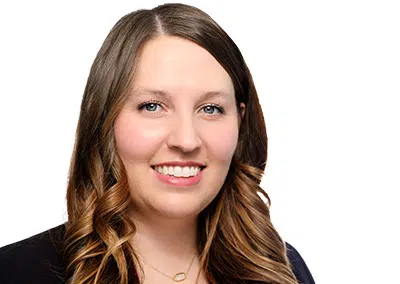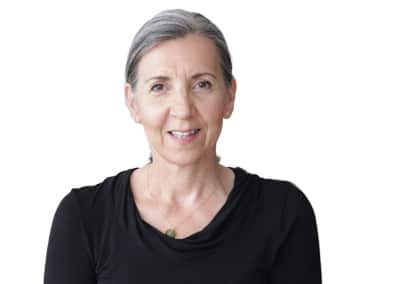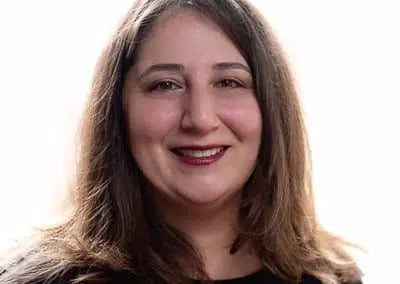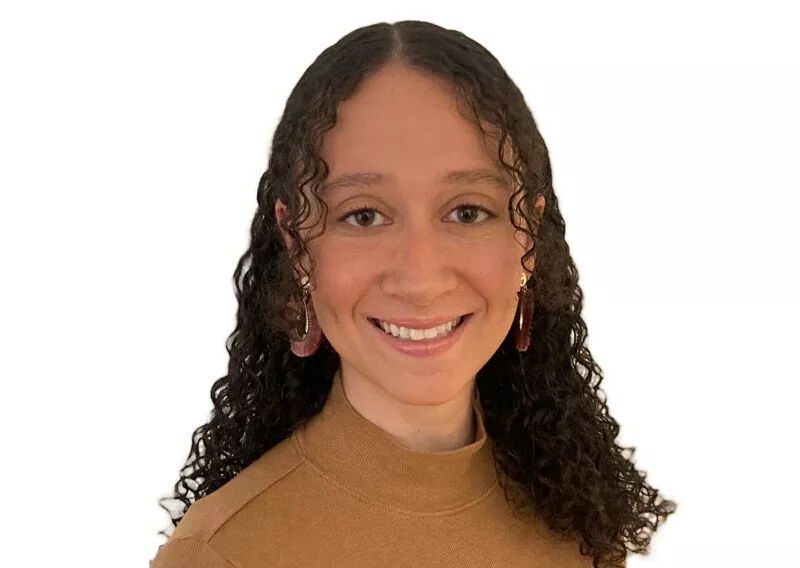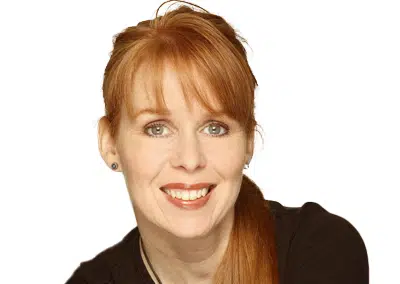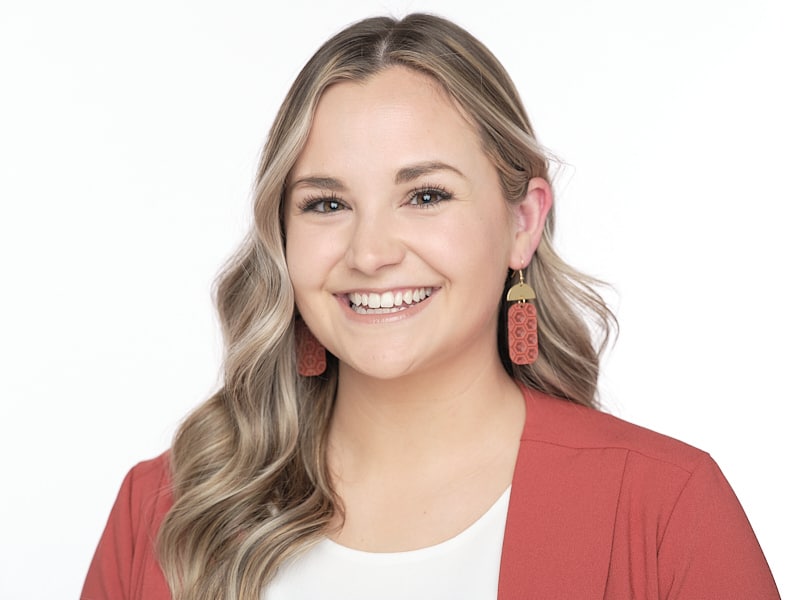
Marriage Counseling Questions:
Does Couples Therapy Work?

Dr. Lisa Marie Bobby is a licensed psychologist, licensed marriage and family therapist, board-certified coach, AAMFT clinical supervisor, host of the Love, Happiness, and Success Podcast and founder of Growing Self.
Takeaways: People often wonder whether couples therapy works. Specifically, they wonder whether couples therapy will work for them. Short answer: Yes, effective, evidence-based couples therapy works extremely well. Learn how!
- What is couples therapy?
- How does couples therapy work?
- The process of couples therapy
- Working on your relationship
Good couples therapy can help you improve many aspects of your relationship including: communication, sexual intimacy, emotional connection, rebuilding trust after affairs, and resolving many common issues facing couples such as differences around finances, creating a more egalitarian relationship, parenting as a team, and so much more.
What Is Couples Therapy?
Before we dive in here, please know that the terms “couples therapy,” “couples counseling,” “marriage counseling,” and “relationship coaching” are often interchangeable. Marriage counseling is the term that’s used when a married couple is doing relationship improvement work while couples counseling is the general term used for the same relationship growth process when a couple is committed but isn’t married.
The experience of good, productive relationship growth work is very similar, but will have a different context for a married vs committed couple. Relationship coaching is also for the purpose of relationship improvement (and extremely similar in practice to couples therapy and marriage counseling) but can be more focused on goals and practical solutions than traditional insight-oriented couples therapy approaches.
Research has shown that, with few exceptions, online marriage counseling and online couples therapy are just as effective as in-person Denver couples therapy, if not more effective.
Any “relationship growth work,” including couples therapy, is going to be focused on increasing understanding, improving communication, and helping both you and your partner grow as individuals in order to become more emotionally available and responsive for each other.
This is an experiential growth process that helps you develop new understanding of yourself and your significant other so that you can incorporate new ways of thinking, feeling, and behaving that strengthen your relationship.
Now that the terms are out of the way…
How Does Couples Therapy Work?
All relationships have ups and downs. Understand, however, that frustrations and hurt feelings that stem from relationship problems can have a major impact on your life. You might find yourself thinking about your relationship a lot or worried about how things are going to get better. These are signs it’s time for couples therapy. Couples who care about their relationships often seek outside support to repair their relationships.
There are plenty of statistics that show how effective couples therapy can be, but stories of successful couples therapy are often more revealing. Here’s an example of what couples therapy looks like in action.
Will Couples Counseling Work For Us?
Ask Chris and Lauren.
“Chris” and “Lauren” (not their real names) typify the couples we see. Chris emailed us for a free couples therapy consultation meeting, saying that he and his wife needed help to improve their communication.
Fun fact about couples therapy: You may be interested to know that, while it might be easy to assume that in heterosexual relationships the female partner is always the one initiating couples therapy, that is far from true. At Growing Self. at least 50% or more of our couples therapy clients got started because the male partners initiated it. Good guys care about fixing their relationships!
Furthermore, when men initiate couples counseling it’s often a good sign that couples therapy will work. When both partners are committed, invested, and willing to do the work, amazing things can happen in couples counseling.
The Process of Couples Therapy
The First Consultation
During Chris and Lauren’s first consultation with me, I had to go over some of the basic legalities (that I’m required by law to provide as a licensed marriage and family therapist) and — like I always do — I shared more information about what they could expect from me throughout the process of couples counseling.
Once I’d answered their questions about myself and their general questions about marriage counseling and couples therapy (like how much couples therapy costs, how long couples therapy takes, the difference between couples therapy and relationship coaching, etc), they told me about the concerns that led them to seek professional help for their relationship.
They talked about feeling disconnected from each other, and that miscommunication was rampant. Both reported feeling frustrated, resentful, and — honestly — sad. I could tell that they still loved each other and wanted this to work, but it was like they’d lost the person they loved. Even though they still looked the same, it was as if the kind, loving, fun person they fell in love with was locked behind this grumpy, irritable facade. They missed each other. (Note: They did not say this out loud in their first consultation — couples in distress can’t go there yet. But over time… we got there.)
In a first consultation meeting, I’m always listening for what a couple’s goals are to make sure I can help them. (If not, I help them get connected to a different practitioner). During our first consultation, I got the general sense that they were describing common relationship concerns that I was well equipped to help them with. They said they felt comfortable with me, too, so we decided to move forward into couples therapy together.
I have much more to share about how couples therapy works, but if you’d like to get started, schedule your first consultation meeting.
Let’s Talk.
Schedule a Free Consultation Today.
Couples Goals
In our first sessions after the consultation, I developed a preliminary understanding of what the dynamics were that had been creating problems. I also got a better sense of their specific “couples goals” and what they wanted to get out of couples therapy with me.
They told me a little bit about the history of their relationship. I could hear that they still had a fundamentally strong partnership, even though it had been hard in recent times. They talked about how their relationship had changed since the birth of their first child (which is so common) and how since then, irritation and hurt seemed to have replaced the affection and fun they once shared.
They described often feeling like “roommates” that just went about life without talking that much, except for “tense moments” that sometimes led to (increasingly horrible) fights that left them both upset for days.
Only after a comprehensive assessment process could the true work of couples therapy really begin.
On the surface, Lauren seemed angry, but I could see that under the surface she was really hurting. With just a few gentle questions from me, the hurt poured out and she told me that she felt very lonely and uncared for by her husband at times. She mentioned several behaviors and incidents that contributed to those feelings, too.
She believed that if his behaviors changed and that if he communicated differently, she would feel more connected to him – but that she was doubting that he could. After all, they’d been experiencing power struggles for years!
Lauren went on to tell me that she had been starting to feel hopeless that Chris would be able to change and how that made her worry about the sustainability of their marriage. During the worst moments, she’d even wonder if they should divorce, and find people that they were more compatible with. She also explained, though, that she didn’t really want to get divorced, but didn’t know how else to resolve their relationship problems.
Chris sat with his face reddening. At first, he seemed reluctant to talk. But with my support, he was able to open up about how he felt like she was always upset with him and how that made him want to withdraw. He was able to talk about how he felt lonely and like his emotional needs were going unmet, too. He felt like Lauren was always criticizing him and making him feel like he would never be able to make her happy.
Chris missed “the old Lauren.” Quietly, he talked about how he and Lauren never had fun anymore and — with some hesitation — shared that their sex life wasn’t what it used to be either. Chris believed that if they did more fun things and had more sexual intimacy, things would be better for both of them.
They talked, I nodded. I have seen so many couples in similar situations. Can you relate to these “couples goals” too?
By the end of our first official session, I had a general sense of what they wanted to accomplish in couples counseling and how I could help them. I recommended, as I often do, that we first spend a little more time together for the purpose of understanding what was going on so that our work would be strategic and effective. It’s not enough to see the problems in a relationship. You have to understand why they’re happening in order to correct them effectively.
Relationship Assessment
Chris, Lauren, and I then moved into the extremely important “relationship assessment” phase of the couples counseling process. Good couples therapy always starts with a comprehensive relationship assessment. I met with both partners individually for one session each in order to understand their separate perspectives clearly.
The individual relationship assessment sessions were held with the understanding that a professional marriage counselor would never keep secrets between a couple and that although we were meeting individually, it was strictly for the purpose of their relationship work — not individual therapy. An ethical marriage counselor would never see someone for individual therapy and also for couples counseling. More about “How to find a good marriage counselor” right here.
In addition to our relationship assessment sessions, I also asked Lauren and Chris to complete our comprehensive (250+ question!) relationship inventory in order to gain more insight into their communication patterns, their strengths as a couple, and also their growth opportunities. (If you would like to take a very basic version of this relationship assessment, here’s a link to our free “How Healthy is Your Relationship” quiz.
After the interviews and after I’d reviewed their relationship assessment results, we came back together as a group to discuss the results of the relationship assessment and the plan to help them achieve their relationship goals.
Only after a comprehensive assessment process could the true work of couples therapy really begin.
The Process of Couples Therapy
Lauren, Chris and I meet weekly for about 16 weeks (which is also the average number of sessions for successful marriage counseling) and our couples therapy appointments became the “safe place” where they each trusted that they would be heard and understood. In our meetings, they could talk about hard, yet necessary topics without constant arguing like the experiences they had at home.
Couples therapy was totally worth it for them, and I’ll tell you why…
Couples Therapy Works By Achieving New Understanding
In the second phase of our couples therapy work, I helped them to become a little less “problem-focused” and instead work to understand each other’s deeper feelings and needs.
This systemic approach helped them stop pointing their fingers at each other and removed their slightly codependent relationship tendency to try to get the other to behave differently (which never works, as you may know). They were able to stop blaming each other for “the problems” and instead gain new awareness of how they had been — unknowingly — impacting each other.
Session by session, their empathy for each other grew and their attitudes toward each other softened. They were able to articulate their needs for love and connection and authentically help each other “see” them again. They began to experience each other as emotionally available and validating. They made amends and apologized for the hurt they had unknowingly caused each other.
These experiences generated love, generosity, and goodwill between them that created the foundation for the practical changes that would ultimately follow.
Let’s Talk.
Schedule a Free Consultation Today.
Couples Therapy Works By Teaching New Skills
Once Chris and Lauren started to feel better about each other, we could effectively begin discussing the practical strategies their relationship needed to thrive.
They learned communication skills, new ways of sharing responsibilities around the house, how to become more unified in their parenting, and between our appointments they practiced the things we were talking about in couples therapy.
Because I am trained as a relationship coach as well as a marriage counselor, I often assign between-session “homework assignments” to couples in order to help them keep up the momentum, practice the things we’re discussing in session, and also communicate the need for personal responsibility and accountability for relationship growth.
Like most effective marriage counselors, I do not assign homework in the early process of marriage counseling; it is not appropriate at the very beginning. (Moving too quickly into simplistic “relationship fixes” is a sign of an inexperienced marriage counselor. They will always fail and leave couples feeling more discouraged.) In the later phases, however, my clients are always leaving with sticky notes or reminders on their phones!
Online Couples Therapy Works
Interestingly, while Lauren and Chris actually lived in Denver and could easily attend Denver couples therapy in person, they chose to have most of their sessions as online couples therapy instead. I believe that meeting for online couples counseling was essential to their success. Without it, they would never have been able to keep their weekly appointments with me.
This is really significant and one of the reasons why online marriage counseling and online couples therapy is often more effective than in-person couples work.
Couples therapy works when couples are committed to the process and applying consistent effort in the direction of growth and change. Going two or three weeks between couples counseling appointments can be detrimental — especially in the beginning of couples therapy.
Why? Well, relationship systems are powerful and sometimes difficult to change. Relationship dynamics tend to snap back into place without intensive support in the beginning of the relationship growth process.
I can’t tell you how many times I’ve been working with a couple that was making great progress in couples therapy before they missed three weeks in a row, started fighting again, and trudged back into the office feeling really discouraged. With these couples, I have to remind them that (particularly in the early stages of couples therapy) new relationship dynamics are quite fragile.
The process of couples therapy takes time, and there are “first-order changes” (or behavioral changes) and then “second-order changes” where the relationship system has been transformed. It’s only in the later phases of good couples counseling that second-order changes have happened. That’s when transformational growth feels solid, integrated, and “forever.”
Thankfully, I didn’t have to have that talk with Chris and Lauren — because they met for online marriage counseling. They always kept their appointments with me because it was so easy. They met with me on a laptop at their kitchen table after dinner. They never had to find childcare for their daughters, who were perfectly happy in the other room watching videos, and Lauren often nursed their new baby while we talked. When Chris traveled, as he frequently did, the three of us were still able to meet together – each from a different location for “long-distance couples therapy.” The steady, forward momentum of their couples therapy continued.
Couples Therapy Helps You Evolve
Over time, both Chris and Lauren came to develop genuine understanding and respect for each other’s point of view, learned how to build emotional intelligence, and become responsive, caring partners for each other again.
One of the big takeaways from their work was the realization that in the early stages of their relationship when they felt so “in love” with each other, they didn’t really know each other as well as they did now. Let’s face it: The first years of a relationship feel so easy because you’re just enjoying each other’s company and having a good time. You can’t “go back” to that. Couples have to move forward.
As the demands of life, kids, homeownership, and each of their career paths became more intense, they found themselves in genuinely challenging situations. The first years of their relationship (lounging around in bed all day, going to brunch, attending music festivals) had not exactly prepared them for the new and intense phase of life they were now inhabiting.
The first years of a relationship feel so easy because you’re just enjoying each other’s company and having a good time. You can’t “go back” to that. Couples have to grow.
The next tasks for Chris and Lauren were to:
- figure out how to communicate compassionately (even under legitimately stressful situations)
- productively address practical problems (often on the fly)
- figure out how to parent together
- be good friends for each other
- be social partners
- nurture their emotional connection and healthy sexual relationship
- learn new emotional intelligence skills
… all this while developing new self-awareness that relationship expectations they each inherited from their family of origin experiences were not actually “The Correct Way.
And all of this incredibly important relationship growth work needed to happen in the slim margins of time not consumed by the demands of kids and career. Are you exhausted? Me too!
This is a lot of work and no couple “knows” how to do all these things. We don’t get a “how to have a healthy relationship class” or “how to be emotionally intelligent” class, right?
Unless a couple has the wisdom to do high-quality premarital counseling prior to marriage, most couples never begin an intentional relationship growth process until they start feeling bad about each other or their relationship. Some couples don’t realize they need couples therapy and let their relationship get increasingly toxic before they get help. Strong couples like Chris and Lauren, however, reach out for support while there’s still time to turn things around — well before regrettable things happen or divorce is on the table.
Successful Couples Therapy
I absolutely love being a couples counselor, and a discernment counselor, especially when I get to work with couples like Chris and Lauren. While they were both understandably upset with each other in the beginning of our work, they really wanted to grow together.
With support from an effective marriage counselor (moi, in this case) they were both able to listen to each other non-defensively, take personal responsibility for what they’d been subconsciously doing, and remain willing to reflect on their own internal processes in order to grow. In the later stages of our work, they were also able to be emotionally vulnerable, genuinely empathetic, and compassionate with each other. It was beautiful to be a part of.
When Lauren and Chris had achieved understanding and empathy, they were also both very willing to try new things in response to each other. We talked about housework, parenting, sex, couple finances, in-laws, communication, time together, and much more. We put new plans in place that honored both of their feelings – and the fights stopped. I need to give them full credit, too; they were very good about doing their homework!
More importantly than figuring out a new “action plan” to deal with their new demanding phase of life, the process of couples therapy helped Lauren and Chris feel closer and more connected to each other. They learned how to support each other emotionally, be each other’s “safe place to fall,” and started having fun again.
By the end of our work together they both felt confident that when they hit another rough patch in the future, they would be able to work through it on their own – or call me for a session or two to help them get back on track if they needed extra support.
Working On Your Relationship Is a Gift
During our last meeting, Lauren and Chris sat on their couch with their arms around each other. They seemed so in love and warm towards each other. They had both grown enormously and seemed genuinely appreciative of each other. But the very best part – for me – was towards the end of our final meeting, when I got to meet their young children, waving to me through the video screen.
Still on the call, I got a little teary thinking about the numerous and beautiful gifts this couple had given their daughters through their work in couples therapy. Not just the gift of a strong, stable family unit that shields the children from the anxiety and grief of divorce, the stress of coparenting, the challenges of being shuttled between two single, overwhelmed working parents, and/or coping with new blended families (though sparing children from having to go through all these things are worth so much).
But really, this couple did so much more than stop a potential divorce and fix their relationship.
Now, Lauren and Chris were going to be able to model – every day – what it means to be emotionally healthy people, in a healthy relationship. Chris and Lauren’s secure attachment to each other would help them be more nurturing and emotionally available to their children. That they could work together as a parenting team would help them be less stressed, more attentive, and more thoughtful parents.
Perhaps even more importantly, through their growing-up years, their kids were going to be silently, subconsciously absorbing lessons about how to communicate, how to be emotionally intelligent, how to trust safe people, how to effectively work through problems, and how to cultivate emotional safety. They would see their mom make a bid for connection instead of a critical comment and watch their dad respond with kindness in return. These moments matter a lot.
With luck, the couple’s little girls would grow into women who knew how to build healthy relationships — and how to avoid toxic ones. Someday, they might become partners, wives, and mothers with huge legs-up in building their own healthy family units… because they’d grown up in one. Their children would learn how to have healthy relationships and pass those lessons on to their own kids.
Working on your relationship is so worth it – and not just for you. We know that trauma can damage generations of people beyond those it impacts directly, even down to a cellular level. Positive relationships can have an even bigger impact than traumatic ones, but in a positive direction. Positive, healthy relationships strengthen everyone lucky enough to enter the circle of their warmth.
When your relationship is healthy and strong — when you are healthy and strong — it lifts up everyone around you. Your healthy relationship will reverberate through the minds, hearts, and families of your future descendants – long after you are gone.
Love is truly the only thing that lasts forever.
Thank you for taking the time to read this story and for allowing me to share this personal perspective with you.
Yours sincerely,

Dr. Lisa Marie Bobby is a licensed psychologist, licensed marriage and family therapist, board-certified coach, AAMFT clinical supervisor, host of the Love, Happiness, and Success Podcast and founder of Growing Self.
Meet a Few of Our Expert Couples Therapists
Marriage Counseling Questions | Couples Therapy Questions
If you’re considering getting involved in marriage counseling, couples therapy, or relationship coaching you probably have questions! Get your marriage counseling questions answered, right here.
Relationship Advice
Our relationship experts have tons of free, helpful relationship advice on numerous topics to support you both on your journey of growth together. View our relationship advice.
How Healthy Is Your Relationship?
Take our free relationship quiz to discover your strengths and growth opportunities, and get expert recommendations.
When To Get Marriage Counseling?
Was that just a yucky fight? Or is your relationship really in trouble? Here’s how to tell when to get marriage counseling.
What To Expect From Marriage Counseling
Learn what to expect from marriage counseling, from your first free consultation to the triumphant “graduation” from couples therapy.
Relationship Coaching vs. Couples Therapy
What’s the difference between relationship coaching vs couples therapy? Learn about both approaches, and which is right for you.
How to Find a Marriage Counselor
Not all marriage counselors are the same. Getting involved with a bad one can be a disaster. Here’s how to find a good marriage counselor…
Pre Marriage Counseling
Couples counseling before marriage is not the same thing as premarital counseling. Many couples need to grow together before they can move forward.
How Long Does Marriage Counseling Take?
You shouldn’t be in marriage counseling for years. Learn the average length of marriage counseling, depending on your situation, and your relationship goals.
How Marriage Counseling Works
Marriage counseling works, but how? Learn how marriage counseling works, and how the process can help you grow, together.
Does Couples Therapy Work?
Couples who successfully work through rough patches come out stronger than ever before. If you’re wondering, “Does couples therapy work?” read this article for the inside scoop.
Can We Do Marriage Counseling Online?
Online marriage counseling can be incredibly convenient and effective — but not always. Learn when online marriage counseling is the best bet, and when it’s a bad idea…
Can You Do Long-Distance Couples Therapy?
Yes, we provide long-distance couples counseling from all over the world through secure, easy, three-way online video.
Does Insurance Cover Marriage Counseling?
Insurance can pay for marriage counseling (aka, family therapy), but only sometimes. Learn when insurance covers marriage counseling, and when it won’t.
How Much is Marriage Counseling?
Getting expert help for your marriage can be the best, most life-changing decision you ever make. How much do couples therapy and marriage counseling cost? Get all the details, here.
Gift Relationship Help
If you have a loved one who is struggling in their relationship, you can help them get help by “gifting” couples counseling or coaching. Here’s how…
Discernment Counseling For Couples
Before marriage counseling can work, both partners need to want it to work. Discernment counseling helps you resolve ambivalence, and get clarity.
Why Evidence-Based Therapy Matters
Marriage counseling can be a huge waste of time if your counselor doesn’t practice evidence-based approaches to marriage counseling. Here’s why…
Online Couples Therapy
We offer Denver couples therapy and Denver marriage counseling as well as online couples therapy. Learn about our online couples therapy services.
Our Relationship Services
We offer premarital counseling, sex therapy, perinatal counseling, parent coaching, affair recovery, blended family counseling, financial therapy for couples, and more. Learn about all our couples counseling services.
Meet our Relationship Experts
Growing Self relationship experts are marriage and family therapists with specialized training and experience in effective, evidence-based approaches to help couples grow, together. Meet our team of relationship experts…
The Best Marriage Counseling
Curious to hear what others have to say about their experience with “the best marriage counselor?” Read their stories…
Free Resources, For You.
Our experts are incredibly generous and have put together an entire library of free resources and actionable advice to support you on your quest for Love, Happiness, and Success. View our blog + podcast.
More Questions? Let’s Talk.
We’re available by phone, email, and chat, and happy to answer any of your questions personally. Get in touch, anytime.
Start Couples Counseling or Coaching
Ready to begin marriage counseling, couples therapy, or relationship coaching with Growing Self? Start by scheduling a free consultation meeting with the expert of your choice.









